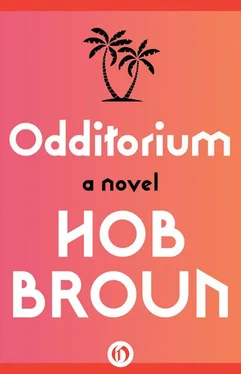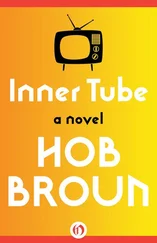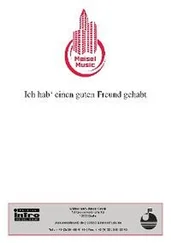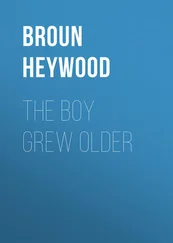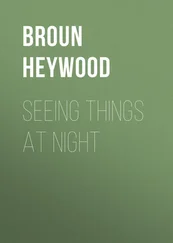“Wait here for me. If you get bored, just circle the block. I’ll catch up with you.”
He dialed Looie from a Blarney Stone bar. A woman in rainbow knee socks was wishing herself happy birthday. Three old-timers were arguing with the bartender over program selection on the tube.
“What’s shakin’, Looie? You ready for a delivery? We’re just fifteen minutes north.”
“We? No, never mind. Surprise me.”
“She’s not your type, Looie. Trust me.”
“‘Trust me,’ he says. I didn’t even know they’d let you out until a couple days ago. You’re in defiance of science, my friend. You’ll teach them all humility before it’s over.”
LOUIS “CHEMIKAZI” LEVITSKI CAME from rugged Ashkenazic stock. His father was a muscular, taciturn individual who had learned, during a lengthy tour of Eastern Europe’s DP camps, that a keen sense of dread was a man’s best friend. He was not a family man, preferring to spend all his time behind the counter of his stationery store, sipping schav from a Mason jar, never removing his overcoat. He wanted his son to go into banking or real estate and become “a bigger thief than any of them.” Louis’s mother, a sickly woman with an erratic temper and a compulsive devotion to the films of John Garfield, wanted him to become a composer of Broadway melodies. “With the royalties, you can buy me a whole hospital,” she used to say. But Louis disappointed both of them. He was a genius.
In 1965 he became the youngest student ever to be graduated from the doctoral program of Rensselaer Polytechnic. A multinational corporation offered him a substantial bonus package to sign on and he went immediately to work on a shellfish toxin project funded, through a Liechtenstein holding company, by the CIA. While the project itself was a failure, Louis was not. He was, in fact, the talk of the boardroom. Skipping a few levels of the hierarchy did not endear him to his colleagues (that was fine; he didn’t want friends), but a year later he had his own lab, an unlimited budget, and was busily rearranging peptide chains in an effort to develop a neuromuscular blocking agent which, when released into an urban water system, could “neutralize” as many as half a million people in less than twelve hours. He was extremely happy in his work.
Then came the Summer of Love and Louis was ravaged, subverted.
Late one evening he was snuggled in his tiny apartment listening to Ezio Pinza and reading a chemical engineering journal — or trying to. The noise from above was making it very difficult: clangs, thumps, shrill laughter, and what sounded like someone roller-skating from one end of the hall to the other. He went upstairs to complain.
There, in a hot crush of thoroughly unhinged folk who seemed to be emitting smoke from every orifice, a large man inexplicably dressed in Bermuda shorts, a straw boater and the dress tunic of Her Majesty’s Coldstream Guards prevailed on him to have a cup of punch and then another and then … Yes, he’d been right about the roller-skating. Lovely girl, but her taffy face was, my God, drooping down around her waist. Hmmm, better lay off that punch. Tastes like glue anyway…. Getting chilly. Maybe ought to close those portholes, keep the storm at bay. At bay in the Bay, indeed. Louis with the large L, have we met before? Athens, perhaps. Look out for the cactus, look out…. Fingers numb. Tingling in scalp area. Blankets, more blankets. I must see the Captain…. I’m repelling electrons, buddy, don’t get smart with me…. You’re okay. Just some queasy thing’ll pass. I know what I’m doing. Ionization. I’m in solution … Wait a minute. Oowooo, there’s something in my belly made of jelly and it needs to get out! …
This first LSD experience was by no means his last but, in its aftermath at least, was certainly the most transforming. After riding up and down in an elevator with two gay poets and a beagle for an hour and a half; after scampering through soot-black tunnels of the IRT line with a teenage waitress from Babylon, L.I.; after a dawn confrontation with the Angel of Chemistry, a cheap dame wearing all kinds of bead necklaces who spilled maggots from her mouth whenever she opened it; after waking up fully clothed in three inches of bathtub water in the home of a kindly black postal worker who had scooped him off the shoulder of the Cross Bronx Expressway, Looie Levitski had no choice but to start all over again.
He entered his laboratory that afternoon, destroyed all his notes, poured acid over the desks of several vice-presidents, and with his bare hands smashed spectrometers, gas chromatographs and a scintillation counter worth upwards of four hundred thousand dollars.
A fugitive from justice, he fled to Oregon and built himself a cabin overlooking the Rogue River. There he passed the next four years, sturdy and contemplative, with his logger’s boots and brier pipe, hewing wood and drawing water, observing birds and wildflowers, casting for steelhead trout and making serene, Tantric love to a series of fragmentary women who came to sample the purest hallucinogenic drugs in the state, the product of Looie’s undiminished skills. To his amazement and delight, he discovered that women found him charming. By almost any standard, certainly, he cut a less than dashing figure, so what was it? Perhaps his newly discovered abilities as a chef? His cool acceptance of failure? His distaste for violence of any kind? Or perhaps it was nothing more than his avowed discovery of a vaginal enzyme that prevented tooth decay and his manifest intention never to darken again a dentist’s door.
But one day, Looie wandered into the forest to collect pine cones, having left a gas flame on near a beaker of formic ether. The cabin burned to the ground. Everything was lost, including eighty-nine chapters of automatic writing: “Cacaphonous Desperation Versus the Inherent Glide of Starched Mush.”
He returned to New York via bicycle. It took him five months.
Looie’s loft was on Pearl Street in a part of the city originally laid out with the horse-drawn vehicle in mind and Christo had to jog back and forth on one-way streets. The block was grimy and dismal, a line of vacancy; obsolete workshops of stale-cake brick held together with barbed wire and rusted sheet tin; street pocked with glass, sparkling seeds from which the weeds grew.
Tildy, with narrowed eyes: “Who’d want to live here?”
“You know what they say. Never judge a book by its jacket copy.” He made a modified K turn, nosed up to an enameled green steel door. “Actually, I think you’ll like this part. It has a certain cinematic tang.”
He got out, climbed on a standpipe to press a button high on the wall. The door lifted, revealing a caged freight elevator. Christo pulled the gate and drove them, Fiat and all, aboard, called “All in” up the shaft; they began very slowly to rise. The shakes and shudders gave Tildy the same and she reached for Christo’s hand.
“It’s all right. This thing can hold a cement mixer.”
At last they edged into light. Looie was waiting for them by an already open gate on the third level of this one-time hides and leathers warehouse, a short, thinset being in a velour tracksuit. He had beady black eyes and, except for a small, triangular beard dyed blue, not a hair on his head — this made his prominent nose even more so, like, you could open beer bottles on it. The original-cast album of Bye, Bye Birdie was playing and he lip-synced along.
“We’re going to park in this guy’s living room?”
Christo smiled. “I thought you’d like this part.”
But there was no living room as such. The dividers, panels of pebbled plexiglass on overhead tracks, had been drawn to one side; it was one clear-through space so large that details at its farthest depth — some kind of platform, old machinery — were hard to make out. The floor was sanded white, walls stripped back to the brick, tin floral-imprint ceiling, furniture of chrome and suede, warm earth tones, recessed lighting.
Читать дальше
